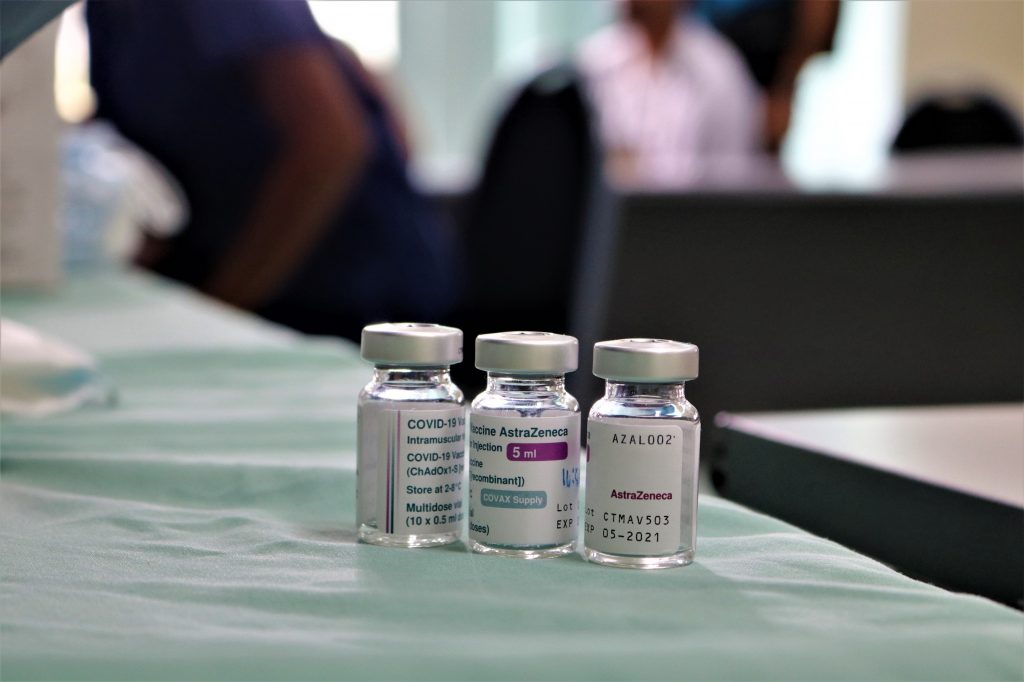
Now that U.S. President Joe Biden has backed a proposed waiver for COVID-19 vaccine intellectual property rights, the next stop is for the World Trade Organization to hammer out a deal – a process that could take months.
Not only are the negotiations expected to be lengthy, they are also likely to result in a waiver that is significantly narrower in scope and shorter in duration than the one initially proposed by India and South Africa, trade experts said.
Prior to Biden’s announcement, the two countries confirmed their intention to draft a new proposal at a WTO General Council meeting on Wednesday, prompting the body’s new Director-General, Ngozi Okonjo-Iweala, to express hope for “a pragmatic solution.”
Ten meetings in seven months have failed to move WTO members toward consensus on the original waiver proposal
“At a minimum, it’s going to be a month or two,” Clete Willems, a former Trump White House trade official who previously worked at the U.S. trade mission to the WTO in Geneva, said of any possible agreement.
“Right now, there is no proposal on the table that would waive the TRIPS agreement simply for vaccines,” he said, referring to the WTO’s agreement on ‘Trade-Related Aspects of Intellectual Property Rights’ that governs the transfer of property like movie rights or vaccine-manufacturing specifics.
A more realistic goal may be the completion of the agreement in time for the WTO’s next ministerial conference, scheduled for Nov. 30 through Dec. 3, said Willems, now a trade partner at the Akin Gump law firm in Washington. That would give vaccine producers more time to boost global supplies which could help contain the virus and ease the pressure for the waiver.
The initial IP waiver proposal by India and South Africa last October included vaccines, treatments, diagnostic kits, ventilators, protective gear and other products related to the COVID-19 pandemic.
HAGGLING OVER WORDS
U.S. Trade Representative Katherine Tai said on Wednesday that she will pursue “text-based negotiations” on the WTO waiver, the standard but tedious process for trade deal talks. Negotiators trade texts with their preferred wording, then try to find common ground, sometimes leaving blank spaces for thorny differences to be settled by politicians.
All 164 WTO member countries must reach consent on such decisions, with any one member able to veto them, so there could be a lot of red pencils out. Negotiations are likely to be held in a mixture of virtual and in-person meetings.
“Those negotiations will take time given the consensus-based nature of the institution and the complexity of the issues involved,” Tai said in a statement that tamped down expectations for a quick deal.
U.S. companies, which strive to influence the USTR’s trade negotiations, are already mobilizing to try to ensure the WTO talks lead to a waiver that’s as narrowly targeted as possible.
“This is a mitigation effort. We’re aiming to make it less bad than it otherwise would be,” one industry source said.
Some Republican lawmakers are pushing the argument that the decision will hand American technology to China.
“What this decision will do, if it goes forward, is benefit countries like China that are aggressively trying to obtain U.S. technology to bolster their own domestic champions,” Republican Senator Mike Crapo said in a statement.
While Biden’s backing adds political impetus to get a deal done, other countries with big pharmaceuticals sectors, including Britain, Japan, Switzerland and in the European Union, were opposed to the waiver and have the ability to block a deal.
On the plus side, a successful waiver negotiation would “improve the atmospherics” at the WTO, which has been marked by failure to reach agreement on substantive new trade policy since its inception in 1995, said Harry Broadman, a former Clinton administration trade official who helped negotiate the trade body’s creation.
“It’s good that the WTO hopefully can actually think about a consensus,” Broadman said, adding that he sees slim prospects that a vaccine deal could revive prospects for broader WTO negotiations.

